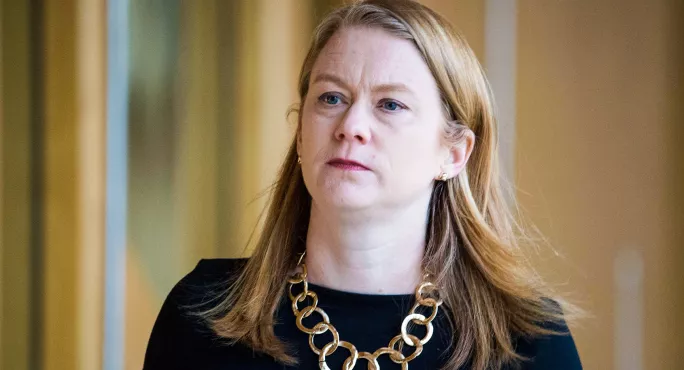Somerville tells heads strike action over pay can still be averted

Schools across Scotland are set to close next week as teachers go out on strike over pay - but Scotland’s education secretary told a gathering of headteachers this morning that she still hopes the walkout can be averted.
Members of Scotland’s largest teaching union, the EIS, are due to strike on Thursday 24 November, and yesterday the union announced plans for two further days of strike action in January.
This morning, however, at the first full annual gathering of School Leaders Scotland (SLS) since 2019, education secretary Shirley-Anne Somerville said: “I really do still hope, even at this late stage, that we can find an acceptable resolution in the very near future that would make strike action unnecessary.”
Ms Somerville also said she wanted the reform of Scotland’s education agencies to be “significant” and “tangible for all learners and educators” and gave the headteachers her “personal commitment...the change we all want to see is what happens”.
The education secretary’s comments follow the concerns expressed by headteachers yesterday - and by other key figures in recent months - that the reform could just end up being a “reshuffling of the deckchairs” because of the dominance of the old education agencies on the boards that are supposed to be delivering the reforms.
- Background: Overwhelming vote for strike action over teacher pay in Scotland
- Yesterday: Two more days of national teacher strike action in Scotland
- Also this week: Secondary teachers in Scotland vote for strike over pay
Professor Ken Muir’s report on the reform of Education Scotland and replacement of the Scottish Qualifications Authority (SQA), published in March, recommended establishing three new education agencies: a new qualifications and assessment body, which he provisionally called “Qualifications Scotland”; an independent inspectorate; and a “national agency for Scottish education” to advise the Scottish government on curriculum and assessment policy, as well as provide professional learning.
When it came to the new national agency for Scottish education, Ms Somerville said it would be teacher-led, “to ensure it is delivering what teachers and leaders want rather than, perhaps, what government may have decided teachers and leaders want”.
On pay, Ms Somerville said she was working very closely with local authorities’ body Cosla “to see what can be done to deliver an enhanced pay offer”.
However, she also said “that to fund an additional pay increase for teachers, further cuts will need to be made from existing commitments within the education budget”.
For their part, the secondary school leaders - who gathered in St Andrews yesterday and today for their annual conference - wanted reassurance that “any forthcoming pay award will be ungraded”.
In April, SLS general secretary Jim Thewliss, described the 2021 pay deal as “a slap in the face” for headteachers, given that the increase for those earning over £80,000 was capped at £800.
Responding to heads’ concerns that this year’s deal could also see them treated differently, Ms Somerville said the government was working with Cosla to determine how much funding could be made available - which she described as “the envelope” - and the next step would be to look at how that money might be used. But she did not rule out putting forward a differentiated offer.
She said: “There are a number of challenges that we will all have to face up to about how that envelope is used once we are in that position. That’s obviously something we are working very closely with Cosla on and Cosla, as the employers, will be able to move forward with the actual proposal for a pay settlement.”
SLS has not backed strike action. Although 69 per cent of its members who voted in a ballot were in favour of striking, this was based on a turnout of just 38 per cent, meaning only 26 per cent (190) of the 723 members eligible to vote were in favour. Legislation requires at least a 50 per cent turnout for a trade union ballot on industrial action to be successful.
Members of primary school leaders’ body AHDS will be out on strike with EIS members on Thursday - assuming the walkouts go ahead as planned.
You need a Tes subscription to read this article
Subscribe now to read this article and get other subscriber-only content:
- Unlimited access to all Tes magazine content
- Exclusive subscriber-only stories
- Award-winning email newsletters
Already a subscriber? Log in
You need a subscription to read this article
Subscribe now to read this article and get other subscriber-only content, including:
- Unlimited access to all Tes magazine content
- Exclusive subscriber-only stories
- Award-winning email newsletters
topics in this article



